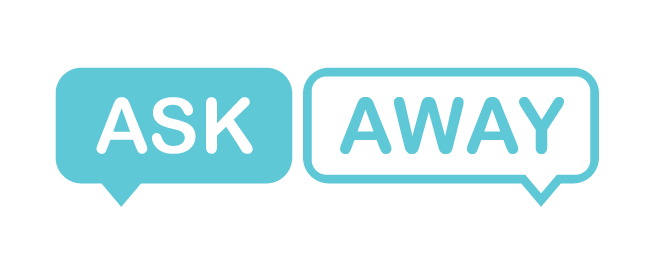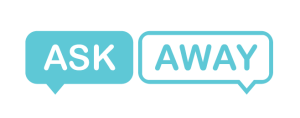“One of the questions I always ask the candidate is to tell me about their strengths and weaknesses. I can’t begin to tell you how telling the answers are. I always make the joke that it is one of the only true joys of the trade to ask a mean question like that, to pave the way for an honest answer. The thing is, it is not a mean question, but it will tell me a lot about you – more than just your resume ever will.”
Give me a strength and a weakness
When I am recruiting for a role, I am looking to get an understanding of the full package. Sure, I want to know all about your education, school and GPA. And yes, I am really interested in your background, the projects you executed, and the clients you landed. If you have done it well, your resume will tell me that. A good CV highlights those topics, and lets me see in a split second.
But what I am really interested in, you can boil down in two questions. How did you do it? And what kind of person are you? In order to get there, I interview, and the positive/negative question for me are a good indicator.
The reason I ask
Like the financial institutions that warn you, “Information on past performance, where given, is not necessarily a guide to future performance.” I want to get the best idea I can on how you will act in the future: I want to get as close to predicting your behavior as I possibly can.
When your resume says that you increased revenue year over year with double digit numbers, that’s half of the story. An incredible result, and in and of itself, something I would very much like in my team. But what it doesn’t tell me is how you did it. If you achieve the result by driving the support teams crazy, going toe-to-toe with your colleagues or just generally leaving bodies in your wake, it’s not sustainable, and I need to know.
I know firsthand that those types of professionals are highly effective but burn bridges as they go, and they prove to be incredibly difficult to manage on their inter-personal skills. I can’t begin to explain to you how many times I had to tell that employee that, although they reached their goals, their performance on the critical competences wasn’t enough. You can’t win that one.
What I am looking for
I am looking for self-awareness more than anything. I’d like to know that you know yourself, and that you have a view on the things you excel at, and the things you are working on, or just make you, “you”. It doesn’t really matter that certain things are difficult to work on, and sometimes I just want the hiring manager to know, “ok, this candidate is good, but just know, every now and then he goes into a room and screams into a pillow. But after that, he is the best person ever in front of a customer.”
I am looking for honesty. It is a scary question, because it is standing on thin ice, saying you’re not the best at something. But you know what: if we are any good, we are going to find out anyway. And at least, based on our interview, we know. And that makes it easier for you.
Last but not least, I am looking for originality. The old “turn something that is actually positive into sounding like a negative”, is a red flag for me. “Sometimes I just care too much about my clients” has to be one of the worst answers I have gotten.
By the way, if I don’t like the answer, I will ask again.
How not to answer
Me, but I dare to say, all recruiters, are looking for an honest answer that shows depth, understanding and development. We want to make sure that you are the right person for the job. A good recruiter will make sure you are a good fit for the role, but will also make sure the role is a good fit for you. So, blowing off this answer is not helping either of us. And there are quite a few ways to botch this question.
My favorite one: “I don’t have any weaknesses.”
Yes, you do, and based on the answers of the follow-up questions you should really expect, it is either lack of self-awareness or arrogance. Both will be major minuses on your candidate score card. Please, for the love of everything, don’t say, “Nope, don’t have any.”
Second, slightly less terrible but still bad: translating a positive into a quasi-negative. “I am a workaholic” just means you want me to know you work hard. “I am a perfectionist” is aimed at showing me your drive for a good product and attention to detail. Give me that answer, and my follow-up questions will be, respectively, “can you give me examples of where you pushed your boundaries beyond the reasonable? How do you manage your workload? And how would your team describe you?” and “tell me about your dedication to deadlines, delegating skills and stress-levels when delivering product.” Absolutely unfair, and the tone of the discussion will get a dent, but that self-awareness is crucial.
Third, and least annoying, is telling me your spreadsheet skills are not good enough, you lack the French language skills, or you don’t know the ins and outs of the role you’re applying for. I am not looking for a lack of knowledge, or a lack of skills. Those are relatively easy to solve and correct. I am looking for you, as a person. I will follow up and ask you about a character trait.
By all means, do not answer in a way that kicks you out of the process. Don’t answer, “I am not really good with people”, when you are applying for the role of HR Manager, of say “deadlines are tough,” when you interview for Copy Writer. Pick things that are authentic but don’t jeopardize your position in the interview.
Top tip, though, if you recognize yourself in either of the two scenarios, you do need to seriously consider if those roles are good fits for you.
How to answer
The key to answer this question is to pick something that is real, and in your answer, show how you have or are in the process of overcoming that weakness. If you make your answer authentic, it will likely make it relatable.
“I have stage fright, and talking in front of groups was difficult for me. I realized that, as a people leader, I need to be comfortable delivering a message to my team. So, I joined a debating club and taught myself to be confident in front of a group.”
Trust me, your recruiter knows that this is a tough question. So, practice this. Have a go-to answer with a solid script, and make sure that, if needed, you adapt this for the role you are interviewing for.
If you answer honestly, authentically and in a concise manner, your interviewer will see the weakness a something not be worried about. Don’t forget: it’s not just the words, it’s the nonverbal as well. Practice makes perfect.
Nobody is perfect, and we know.









